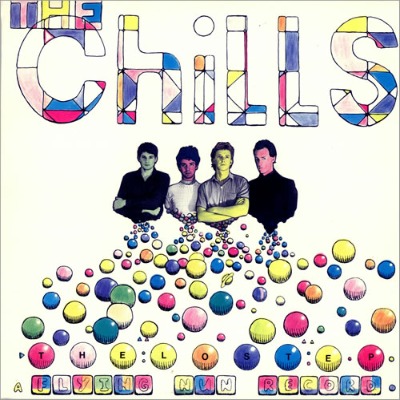Review by Ryan Leach
Toy Love’s eponymous debut—and sole full-length record—is an underrated gem. The album’s strengths are somewhat obscured by the infamous recording sessions WEA (corporate conglomerate Warner Brothers-Elektra-Atlantic) put the group through. Nevertheless, judged on its own merit, the record is a stunning document of Toy Love’s incredible prowess, and a great indicator of the bright futures ahead of Chris Knox, Alec Bathgate and Paul Kean.
The Enemy, a forerunner to Toy Love, was one of New Zealand’s first punk bands. Formed in 1977, when punk was just breaking into the popular consciousness of the Western World, The Enemy inspired a number of Dunedin punk bands (notably The Clean). Unrecorded, The Enemy broke up two years later, largely due to tensions arising from new recruit Phil Judd (formerly of Split Enz). Toy Love emerged almost immediately thereafter, with Paul Kean and Jane Walker joining ex-Enemy members Chris Knox (vocals), Alec Bathgate (guitar), and Mike Dooley (drums). Incredibly popular at home, the group left New Zealand to relocate to Australia, in the hopes of breaking into a bigger market and recording a full length. That’s when the things turned ugly.
Aussie audiences turned out to be indifferent to Toy Love. A painstaking recording process at EMI studios in Australia ensued, with Toy Love failing—like the Velvet Underground before them—to convince hostile engineers that their music was worthy of merit. Frustrated with the Australian recording sessions and the hard times the group faced there, Toy Love packed it in just after their debut hit the shelves.
Listening to Toy Love’s album today, it sounds as if the band’s experiences in Australia affected the members more than the actual product of their labor. Although Toy Love's production is somewhat sterile, it doesn’t sound all that different from the albums Magazine and Gang of Four were releasing in 1980. And that might be part of the problem: the iconoclastic Knox was recording during the “new wave” era, when punk had lost most of its edge and was incorporated into the mainstream. (That transitional period is present in Toy Love’s sound: “Pull Down the Shades”, written during The Enemy period of the band, sounds far removed from the Roxy Music-influenced, mid-tempo pace of “Bedroom”.) Unfortunately, that didn’t sit will with Knox, a man who needed control of his work.
Chris Knox was the driving force behind Toy Love. His voice was incredible, oscillating between Johnny Rotten and Bryan Ferry with the greatest of ease. Already 28 years old when Toy Love was recorded, his lyrics demonstrate a mature, poetic interpretation of teenage reckless abandonment and self doubt; a punk-rock Chuck Berry. His phrasing was equally amazing and unique; it's the hook on “Photographs of Naked Ladies”. Paul Kean, who’d eventually join The Bats, was already a top-notch bassist; just check his lines on “I Don’t Mind” and “Toy Love Song”.
Toy Love gained a strong, early-Fall sound through Alec Bathgate’s sparse guitar work and Jane Walker’s straightforward keyboard playing, not to mention’s the band's penchant for American honky-tonk (a genre Mark E. Smith dipped into from time to time). Not to be forgotten is Mike Dolley’s formidable drumming.
Toy Love is the closest thing I’ve come across in a long time to a forgotten punk/post-punk masterpiece. It’s rare—I bought my copy in New Zealand for a decent price; at the time of this writing, eBay has one copy hovering over the US$100 mark—but Flying Nun did a CD reissue in 2005. Obtaining it is well worth the effort. It should be considered essential.








